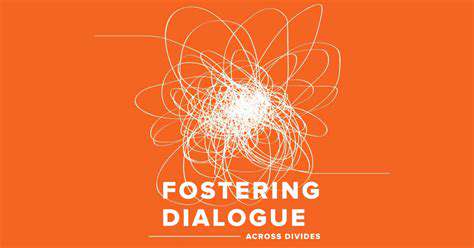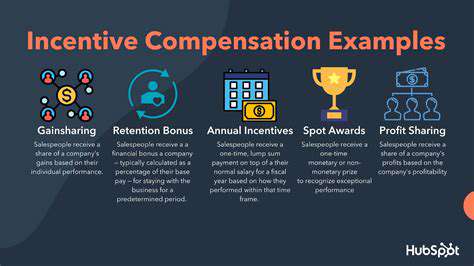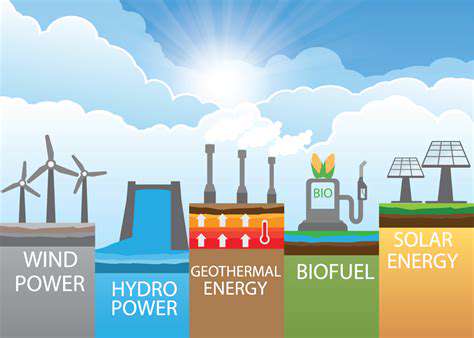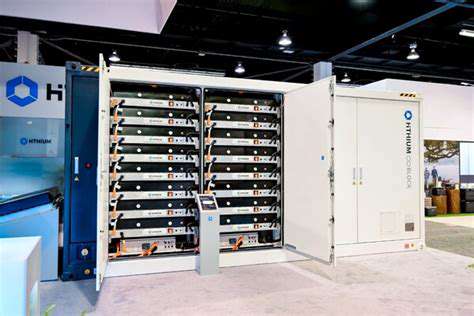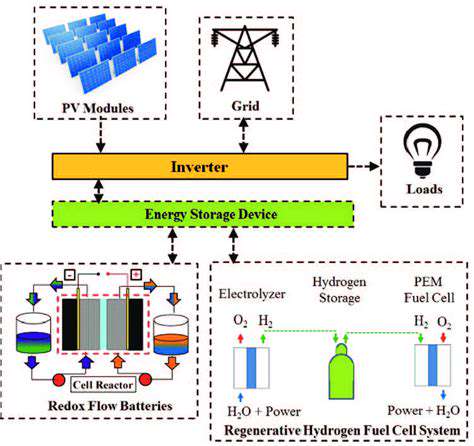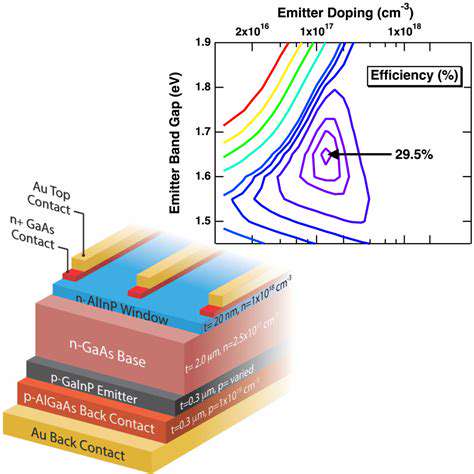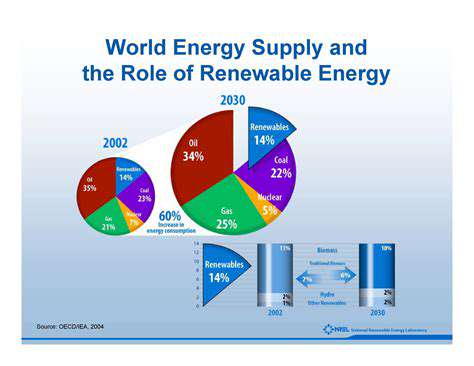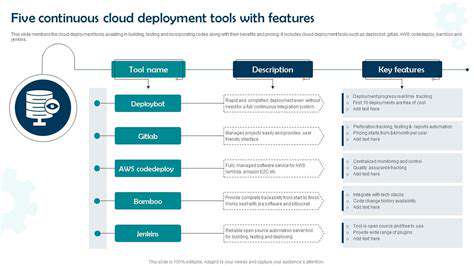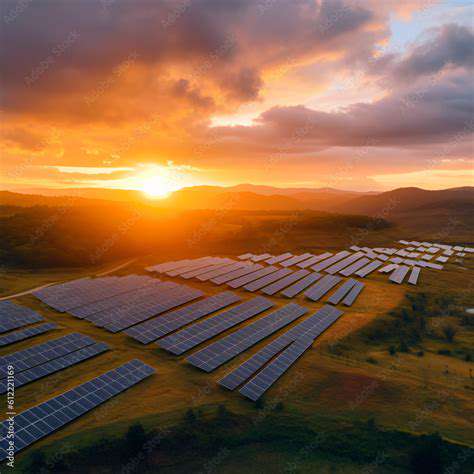The Evolution of Decentralization of Energy Generation Markets
The traditional model of centralized power generation, where large power plants supply electricity to vast grids, is undergoing a significant transformation. Distributed generation, the production of electricity at or near the point of consumption, is rapidly gaining traction. This shift represents a fundamental paradigm change, impacting everything from energy security to environmental sustainability.
This decentralization fosters resilience and reduces reliance on vulnerable, centralized infrastructure. The proliferation of smaller, localized power sources, like rooftop solar panels and community microgrids, offers a more robust and adaptable energy landscape, especially in areas prone to outages or grid instability.
Technological Advancements Fueling the Trend
Advances in renewable energy technologies, particularly solar and wind power, are a major driver behind the rise of distributed generation. The decreasing cost of these technologies, coupled with increasing efficiency, makes distributed generation economically viable for both residential and commercial applications. This accessibility is empowering individuals and communities to generate their own power, reducing their dependence on external suppliers.
The integration of smart grids and energy storage solutions further enhances the effectiveness of distributed generation. Smart grids provide the necessary infrastructure for managing and optimizing the flow of electricity from various distributed sources. Energy storage solutions, such as batteries and pumped hydro, store excess energy generated during periods of high production, ensuring a reliable supply during periods of low generation.
Economic Benefits and Community Impact
Distributed generation offers substantial economic benefits. By reducing reliance on the grid, communities can potentially lower their energy costs and enhance their energy independence. Small-scale power generators can also participate in the energy market, generating revenue from surplus energy and potentially creating new job opportunities in the renewable energy sector.
This localized approach can stimulate local economies and contribute to the development of sustainable energy infrastructure within communities. Local control over energy production can foster a stronger sense of community ownership and responsibility for environmental sustainability. This shift also creates opportunities for innovation and entrepreneurship in the distributed generation sector.
Environmental Sustainability and Grid Modernization
The rise of distributed generation aligns seamlessly with environmental sustainability goals. By reducing reliance on fossil fuel-based power plants, distributed generation significantly lowers greenhouse gas emissions and promotes cleaner energy sources. This transition towards renewable energy sources is crucial for mitigating the impacts of climate change.
Reduced transmission losses and improved grid efficiency are further benefits of embracing distributed generation. By generating power closer to the point of consumption, distributed generation minimizes energy loss during transmission. This improvement in grid efficiency contributes to a more sustainable and cost-effective energy system. It also paves the way for a more modern, resilient, and sustainable energy future.
Technological Advancements Fueling Decentralization
Blockchain Technology: The Foundation of Decentralization
Blockchain technology, with its immutable and transparent ledger system, forms the bedrock of many decentralized applications and platforms. Its cryptographic security ensures the integrity of data and transactions, eliminating the need for intermediaries like central authorities. This eliminates single points of failure and enhances trust among participants. The decentralized nature of blockchain allows for greater security and transparency, facilitating trust and collaboration in a distributed manner. This fundamental technology is pivotal in enabling the shift towards decentralized systems.
The distributed nature of blockchain networks makes them resistant to censorship and single points of failure. This resilience is crucial for maintaining the integrity and availability of decentralized applications. The decentralized storage and processing capabilities inherent in blockchain technology allow for a significant reduction in reliance on centralized servers and infrastructure, further promoting decentralized control and operation.
Decentralized Autonomous Organizations (DAOs): Empowering Collective Decision-Making
Decentralized Autonomous Organizations (DAOs) represent a significant advancement in the evolution of decentralized systems. These organizations operate on pre-programmed rules and protocols, allowing for automated decision-making without the need for a central governing body. This approach to governance empowers community members to participate in decision-making processes in a transparent and democratic manner. The ability of DAOs to automatically execute actions based on predefined conditions further enhances efficiency and reduces reliance on human intervention.
DAOs leverage smart contracts to automate and enforce governance rules. Smart contracts are self-executing contracts with the terms of the agreement directly written into lines of code. This eliminates the need for intermediaries and reduces the potential for disputes, fostering trust and transparency within the organization. The use of DAOs is expanding across various sectors, including finance, governance, and even social platforms, driving decentralized governance models.
Decentralized Finance (DeFi): Revolutionizing Financial Systems
Decentralized Finance (DeFi) represents a significant shift in the financial sector, moving away from traditional intermediaries like banks and financial institutions. DeFi platforms offer a wide range of financial services, including lending, borrowing, and trading, directly to users. This approach allows for greater accessibility and transparency in financial transactions, while also reducing the cost and complexity associated with traditional financial systems. The use of smart contracts to facilitate financial transactions ensures security and efficiency.
DeFi applications are built on blockchain technology, enabling secure and transparent financial transactions. The use of cryptocurrencies as a medium of exchange in DeFi further expands the reach and accessibility of financial services. This decentralized approach to finance fosters greater financial inclusion and reduces reliance on centralized financial institutions. It is an example of how blockchain technology and decentralized systems can radically alter existing financial infrastructure.
Internet of Things (IoT) Integration: Expanding Decentralized Capabilities
The convergence of decentralized technologies with the Internet of Things (IoT) presents exciting possibilities for expanding the reach and capabilities of decentralized systems. As more devices connect to the internet, the potential for decentralized data management and processing increases exponentially. This allows for a more distributed and resilient network infrastructure. The ability to leverage decentralized storage and processing capabilities in IoT applications will enhance the security and efficiency of these systems.
Smart contracts can automate actions and enforce agreements within IoT networks, enabling greater automation and efficiency in various applications. This can lead to improved resource allocation, enhanced security, and reduced costs. This integration of IoT with decentralized technologies is likely to revolutionize industries that depend on interconnected devices and data processing, such as supply chain management, healthcare, and industrial automation.
Economic Incentives and Policy Support
Economic Incentives for Decentralized Energy
Government incentives play a crucial role in fostering the growth of decentralized energy systems. These incentives can take various forms, including tax credits, subsidies, and grants for individuals and businesses adopting renewable energy technologies. Such financial support directly reduces the upfront costs associated with installing solar panels, wind turbines, or other decentralized energy solutions, making them more accessible and economically viable for a wider range of consumers and businesses. This, in turn, accelerates the adoption rate and contributes to the broader shift towards decentralized energy systems.
Policy Support for Decentralized Energy Infrastructure
Beyond financial incentives, robust policy support is essential for the development of supportive infrastructure for decentralized energy. This includes regulations that promote grid connection for distributed generation, streamline permitting processes for renewable energy projects, and ensure the development of appropriate grid management strategies. Clear and consistent policies create a predictable environment for investment and development, encouraging private sector participation and fostering innovation in decentralized energy technologies.
Investment Opportunities in Decentralized Energy
The decentralized energy sector presents significant investment opportunities. Investors can participate in various aspects, from developing and manufacturing renewable energy technologies to financing the installation of systems in homes and businesses. Moreover, there are opportunities in the development and maintenance of supporting infrastructure, such as microgrids and energy storage solutions. The potential for long-term growth and profitability in this sector makes it an attractive proposition for both established investors and entrepreneurs.
Impact on Local Economies from Decentralized Energy
The decentralization of energy production has the potential to significantly impact local economies. By reducing reliance on centralized power plants, communities can create local jobs in manufacturing, installation, maintenance, and operation of decentralized energy systems. This can lead to economic growth and development in previously underserved areas. Furthermore, the generation of local energy can reduce energy costs and increase energy security for communities.
Energy Security through Decentralization
Decentralized energy systems enhance energy security by reducing dependence on centralized grids and foreign energy sources. This resilience is particularly important in situations where disruptions or outages occur in the central supply chain. Having multiple, localized energy sources provides redundancy and stability, minimizing the impact of external factors on energy availability. This increased self-sufficiency can improve energy affordability and reliability for consumers.
Regulatory Frameworks for Decentralized Energy
Effective regulatory frameworks are essential for the smooth and efficient development of decentralized energy systems. These frameworks should address issues such as grid integration, safety standards, and environmental regulations. Clear and transparent regulations provide a stable environment for investment, encourage innovation, and ensure consumer protection. Well-defined legal frameworks also facilitate the integration of decentralized energy sources into existing infrastructure.
The Impact on Energy Security and Reliability
Decentralized Energy Systems and Security
The decentralization of energy systems, driven by renewable energy sources and distributed generation, is fundamentally altering the landscape of energy security. Traditional centralized grids, reliant on large-scale power plants, are vulnerable to disruptions from natural disasters or cyberattacks. Decentralized systems, with their localized generation and storage capabilities, offer a more resilient infrastructure. This distributed nature allows for quicker recovery and reduced reliance on a single point of failure, significantly enhancing energy security in various regions and communities.
Furthermore, decentralized energy systems promote local control over energy resources. This empowers communities and reduces dependence on centralized authorities, thereby enhancing overall energy security and resilience by creating redundancy and adaptability in energy production and distribution.
Impact on Reliability of the Energy Grid
The transition to decentralized energy systems has a profound effect on the reliability of the energy grid. Traditional grids, while often reliable, can experience widespread outages during extreme weather events or equipment failures. Distributed generation and microgrids within decentralized models provide a more robust and reliable system. They offer redundancy and resilience, allowing for continued operation even when parts of the larger grid experience disruptions. This enhanced reliability is crucial for maintaining essential services and economic stability.
Microgrids, in particular, are designed to operate independently or in conjunction with the main grid. This allows them to isolate impacted areas from widespread outages, ensuring continued power supply during emergencies and minimizing disruptions to critical infrastructure and daily life.
The Role of Renewable Energy Integration
Decentralized energy systems often incorporate renewable energy sources such as solar and wind power. The integration of these fluctuating renewable resources into the energy mix requires innovative solutions to ensure reliable power delivery. Decentralized models, with their localized generation and storage, are better equipped to manage the intermittent nature of renewables, thereby improving grid stability and reliability. This integration of renewables is not only crucial for environmental sustainability but also for enhancing the overall resilience of energy systems.
Smart grids, a crucial component of decentralized systems, play a vital role in managing the variability of renewable energy sources. They optimize energy flow, enabling seamless integration of fluctuating renewable energy into the grid and enhancing the reliability of the overall energy system.
Energy Access and Affordability
Decentralized energy systems can significantly expand access to electricity in remote or underserved areas. Traditional centralized grids often struggle to reach these areas due to high infrastructure costs and logistical challenges. Decentralized systems, using smaller-scale generation and distribution networks, can provide affordable and reliable energy access to these communities, fostering economic development and improving living standards. This accessibility is particularly valuable in developing nations and remote regions, where centralized infrastructure is less feasible.
Furthermore, the use of local renewable energy sources can lead to reduced reliance on imported fossil fuels, lowering energy costs for consumers and promoting energy independence. This improved affordability and accessibility is a key benefit of decentralized energy systems.
Addressing the Challenges of Decentralization
While decentralized energy systems offer significant benefits, challenges remain in their implementation and management. Interoperability between different decentralized systems and the integration with existing centralized grids requires careful planning and standardization. Addressing these technical and regulatory hurdles is vital for a smooth transition to a more decentralized energy landscape. This includes developing robust communication protocols and establishing clear regulatory frameworks to ensure seamless operation and avoid conflicts.
Furthermore, the management of distributed energy resources requires sophisticated technologies and expertise. Developing and deploying the necessary tools and infrastructure for monitoring, controlling, and optimizing these systems will be crucial for their successful implementation. This includes advanced data analytics, smart grid technologies, and effective communication networks.



